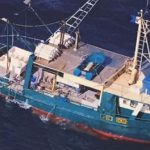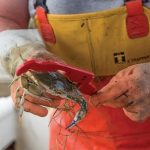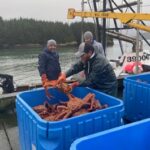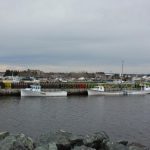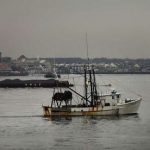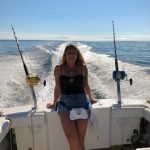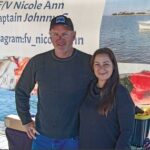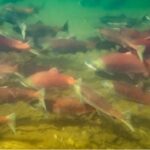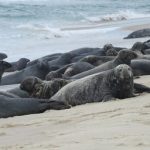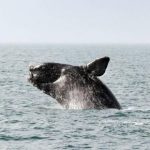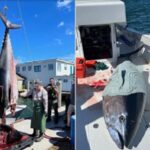Daily Archives: June 8, 2016
Salmon canning jobs dwindling as consumer tastes change, says Canfisco
 B.C. cannery workers are urging Ottawa to save their dwindling jobs and restore the traditional West Coast industry by protecting fish processing jobs. “I’m not a man that begs. But I’m asking you. Keep this community alive.” said Arnie Nagy, cannery union president of the Local 31 Shoreworkers. Nagy joined a conference call with a Fisheries and Oceans Canada standing committee in Ottawa Tuesday to call for fish processing to be protected and kept in local B.C. communities like Prince Rupert where 500 Canfisco jobs were recently lost.,, Rob Morley, Canfisco president, says they are fighting a losing battle. “Consumers don’t want fish in a can. They want it fresh. That is why the Prince Rupert plant closed.” “We’re doing this because the demand for canning is declining. That’s the least efficient operation we have. We sell [fish] fresh because that’s what the consumers want,” said Morley. Read the rest here 22:09
B.C. cannery workers are urging Ottawa to save their dwindling jobs and restore the traditional West Coast industry by protecting fish processing jobs. “I’m not a man that begs. But I’m asking you. Keep this community alive.” said Arnie Nagy, cannery union president of the Local 31 Shoreworkers. Nagy joined a conference call with a Fisheries and Oceans Canada standing committee in Ottawa Tuesday to call for fish processing to be protected and kept in local B.C. communities like Prince Rupert where 500 Canfisco jobs were recently lost.,, Rob Morley, Canfisco president, says they are fighting a losing battle. “Consumers don’t want fish in a can. They want it fresh. That is why the Prince Rupert plant closed.” “We’re doing this because the demand for canning is declining. That’s the least efficient operation we have. We sell [fish] fresh because that’s what the consumers want,” said Morley. Read the rest here 22:09
‘Wicked Tuna’ Star Paul Hebert gets 4 years of probation for defrauding the government
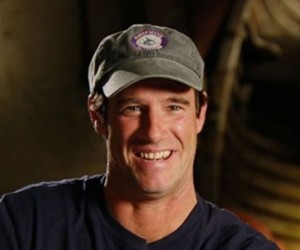 A man whose fishing job was featured on the reality television show “Wicked Tuna” while he was receiving government disability benefits was sentenced on Wednesday to spend four years on probation and pay a $5,000 fine. Paul Hebert, of Gloucester, Massachusetts, must also pay more than $53,600 in restitution as part of a plea agreement with prosecutors. Hebert, 51, used to live in Barre. He was charged last summer with accepting more than $44,000 in Social Security and Medicaid disability benefits between 2010 and 2013. He pleaded guilty earlier this year to charges of Social Security and Medicaid fraud and was sentenced Wednesday in federal court in Burlington. “It is outrageous that Paul Hebert pretended to be disabled and poor in order to collect Medicaid benefits while at the same time starring as a captain of a fishing boat in a national TV reality show,” HHS Boston special agent in charge Phillip M. Coyne said. Read the rest here 18:25
A man whose fishing job was featured on the reality television show “Wicked Tuna” while he was receiving government disability benefits was sentenced on Wednesday to spend four years on probation and pay a $5,000 fine. Paul Hebert, of Gloucester, Massachusetts, must also pay more than $53,600 in restitution as part of a plea agreement with prosecutors. Hebert, 51, used to live in Barre. He was charged last summer with accepting more than $44,000 in Social Security and Medicaid disability benefits between 2010 and 2013. He pleaded guilty earlier this year to charges of Social Security and Medicaid fraud and was sentenced Wednesday in federal court in Burlington. “It is outrageous that Paul Hebert pretended to be disabled and poor in order to collect Medicaid benefits while at the same time starring as a captain of a fishing boat in a national TV reality show,” HHS Boston special agent in charge Phillip M. Coyne said. Read the rest here 18:25
Lobster yachts: Working boats recast as pleasure craft
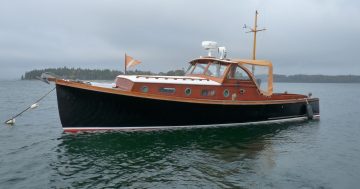 “Lobster boat” conjures up images of hardy boats and even hardier crews wrangling traps on a roiling sea. However on many of today’s so-called “lobster boats,” the only lobster wrangling is on a plate. There are now two categories of boats called lobster. There’s the original version developed specifically for the lobster trade off the Maine coast. Then there’s the recreational “lobster light,” more commonly referred to as lobster yachts. These pure pleasure boats borrow heavily from the appearance of working lobster boats but with modifications that are less focused on working and more on playing. Most of us know the profile of a working lobster boat whether we realize it or not. The Orca in Jaws, probably pop culture’s most famous boat, is a modified lobster boat. Read the rest here 16:16
“Lobster boat” conjures up images of hardy boats and even hardier crews wrangling traps on a roiling sea. However on many of today’s so-called “lobster boats,” the only lobster wrangling is on a plate. There are now two categories of boats called lobster. There’s the original version developed specifically for the lobster trade off the Maine coast. Then there’s the recreational “lobster light,” more commonly referred to as lobster yachts. These pure pleasure boats borrow heavily from the appearance of working lobster boats but with modifications that are less focused on working and more on playing. Most of us know the profile of a working lobster boat whether we realize it or not. The Orca in Jaws, probably pop culture’s most famous boat, is a modified lobster boat. Read the rest here 16:16
South Shore Lobstermen innovating for Whale closure exemption
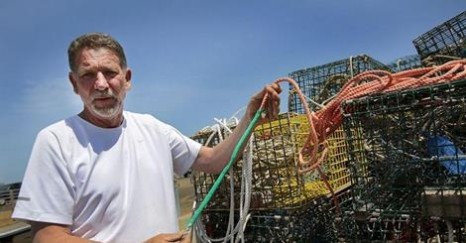 Representatives from local fishermen’s associations may have a solution they hope can lead to an exemption in a federally mandated closure that grounds local fishermen from Feb. 1 to April 30. The closure encompasses nearly 3,000 square nautical miles, including parts of Massachusetts Bay and the waters around Cape Cod. It was first implemented in 2015 and affects fishermen who use vertical lines, such as lobster fishermen. The goal behind the closure is to protect the right whale from possible entanglements. Since before the closure began, the fishermen have been looking for a compromise so they can help protect the endangered species without hurting their livelihoods. The solution that may be the key to an exemption is a type of sleeve local fishermen have been trying out for about two years. Read the story here 15:48
Representatives from local fishermen’s associations may have a solution they hope can lead to an exemption in a federally mandated closure that grounds local fishermen from Feb. 1 to April 30. The closure encompasses nearly 3,000 square nautical miles, including parts of Massachusetts Bay and the waters around Cape Cod. It was first implemented in 2015 and affects fishermen who use vertical lines, such as lobster fishermen. The goal behind the closure is to protect the right whale from possible entanglements. Since before the closure began, the fishermen have been looking for a compromise so they can help protect the endangered species without hurting their livelihoods. The solution that may be the key to an exemption is a type of sleeve local fishermen have been trying out for about two years. Read the story here 15:48
Atlantic States Marine Fisheries Commission revisit chance of reopening Maine shrimp fishery
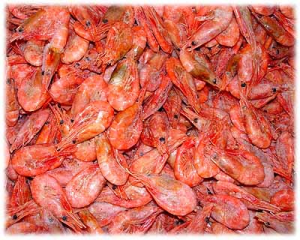 Interstate fishing regulators are revisiting the possibility of reopening Maine’s shrimp fishery, now in its third year of a shut down since warming oceans have negatively affected the shrimp population. Fishery managers with the Atlantic States Marine Fisheries Commission are opening up the possibility of new regulations to manage the fishery. Fishery Management Plan Coordinator Max Appelman said new regulations would address issues such as overfishing. “The big challenges facing this resource are overcapacity in the fishery and overcoming adverse effects of climate change,” Appelman said. (Here comes catch shares!) Read the rest here 13:48
Interstate fishing regulators are revisiting the possibility of reopening Maine’s shrimp fishery, now in its third year of a shut down since warming oceans have negatively affected the shrimp population. Fishery managers with the Atlantic States Marine Fisheries Commission are opening up the possibility of new regulations to manage the fishery. Fishery Management Plan Coordinator Max Appelman said new regulations would address issues such as overfishing. “The big challenges facing this resource are overcapacity in the fishery and overcoming adverse effects of climate change,” Appelman said. (Here comes catch shares!) Read the rest here 13:48
Always Top Quality! Your Seafreeze Ltd. Preferred Price List for June 8th 2016 Has Arrived!
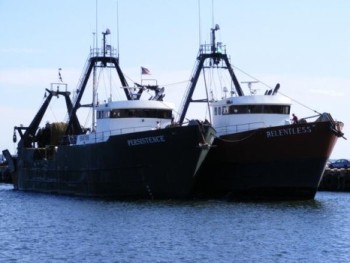 Contact our sales team today @ 401 295 2585 or 800 732 273 Click here for the complete price list from Seafreeze Ltd. We are Direct to the Source-We are Fishermen-We are Seafreeze Ltd! Visit our website! 13:16
Contact our sales team today @ 401 295 2585 or 800 732 273 Click here for the complete price list from Seafreeze Ltd. We are Direct to the Source-We are Fishermen-We are Seafreeze Ltd! Visit our website! 13:16
Athearn Marine Agency Boat of the Week: 55′ Bruno Trawler-Scalloper-Gillnetter Detroit 12-V-71 (Fresh Rebuild)
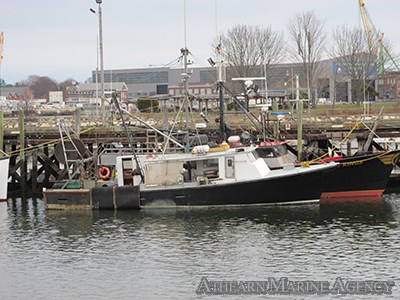 To see specifications, information and 22 photos Click here. To see all the boats in this series, Click here 12:54
To see specifications, information and 22 photos Click here. To see all the boats in this series, Click here 12:54
Speaking of Greenpeace, Even in fish science, payers may sway players
 Many scientists, conservationists and policy makers who’ve been perplexed and vexed by Hilborn’s industry-friendly advocacy in debates about reauthorizing our federal fisheries law, or California’s process to create a network of marine protected areas, or seafood sustainability, have been surprised—but maybe not too surprised—to learn the extent of Hilborn’s industry ties. – Yesterday Carl Safina, and John Hocevar, Oceans Campaign Director for Greenpeace USA put up an op-ed on NatGeo, referencing research funding specifically relating to UW fisheries biologist Ray Hilborn. The premise is that Hilborn didn’t disclose funding sources for some of his research, which seems to be a sticking point for the doom and gloomers that receive funding from Pew Charitable Trust to push Pews anti-fishing agenda. Read Even in fish science, payers may sway players, click here While we’re at it, lets look at some of Carl’s funding, click here No need to look at Greenpeace funding because, Greenpeace has been working to protect people and planet since 1971. The organization does not accept corporate or government funding. Wink! 12:27
Many scientists, conservationists and policy makers who’ve been perplexed and vexed by Hilborn’s industry-friendly advocacy in debates about reauthorizing our federal fisheries law, or California’s process to create a network of marine protected areas, or seafood sustainability, have been surprised—but maybe not too surprised—to learn the extent of Hilborn’s industry ties. – Yesterday Carl Safina, and John Hocevar, Oceans Campaign Director for Greenpeace USA put up an op-ed on NatGeo, referencing research funding specifically relating to UW fisheries biologist Ray Hilborn. The premise is that Hilborn didn’t disclose funding sources for some of his research, which seems to be a sticking point for the doom and gloomers that receive funding from Pew Charitable Trust to push Pews anti-fishing agenda. Read Even in fish science, payers may sway players, click here While we’re at it, lets look at some of Carl’s funding, click here No need to look at Greenpeace funding because, Greenpeace has been working to protect people and planet since 1971. The organization does not accept corporate or government funding. Wink! 12:27
Finally, courage to counterpunch the green bullies – Greenpeace Faces a Resolute Opponent
 When the name Resolute was chosen in 2011, after the merger of Bowater and Abitibi-Consolidated, the Canadian company, a global leader in the forest products industry and the largest producer of newsprint in the world, likely didn’t know what a harbinger it was. Today, it stands alone, set in purpose, with firmness and determination. Displaying the rare courage to stand up to the typical environmental extremists’ campaign of misinformation and shaming designed to shut it down, Resolute Forest Products is fighting back. Many people are probably unaware of the shakedown tactics used by groups whose touchy-feely names belie their true goals. Like most companies, Resolute originally went along. As Peter Foster explains in the Financial Post: “a cabal of radical environmental non-governmental organizations, ENGOs — including Greenpeace, ForestEthics and the David Suzuki Foundation — agreed to stop their campaigns of customer harassment in return for the members of the Forest Products Association of Canada, FPAC, agreeing to sanitize a swathe of the Canadian Boreal forest, and to ‘consult’ on development plans. Astonishingly, governments played no part.” The result was the Canadian Boreal Forest Agreement. The ENGOs ultimately aspired to put the majority of the Boreal forest off limits — ending economic development. Regarding the Greenpeace-promoted concept of “intact forest landscape protection,” Laurent Lessard, Quebec’s Minister of Forest, Wildlife and Parks, says it threatens “absolutely devastating” economic implications. Read the story here 10:27
When the name Resolute was chosen in 2011, after the merger of Bowater and Abitibi-Consolidated, the Canadian company, a global leader in the forest products industry and the largest producer of newsprint in the world, likely didn’t know what a harbinger it was. Today, it stands alone, set in purpose, with firmness and determination. Displaying the rare courage to stand up to the typical environmental extremists’ campaign of misinformation and shaming designed to shut it down, Resolute Forest Products is fighting back. Many people are probably unaware of the shakedown tactics used by groups whose touchy-feely names belie their true goals. Like most companies, Resolute originally went along. As Peter Foster explains in the Financial Post: “a cabal of radical environmental non-governmental organizations, ENGOs — including Greenpeace, ForestEthics and the David Suzuki Foundation — agreed to stop their campaigns of customer harassment in return for the members of the Forest Products Association of Canada, FPAC, agreeing to sanitize a swathe of the Canadian Boreal forest, and to ‘consult’ on development plans. Astonishingly, governments played no part.” The result was the Canadian Boreal Forest Agreement. The ENGOs ultimately aspired to put the majority of the Boreal forest off limits — ending economic development. Regarding the Greenpeace-promoted concept of “intact forest landscape protection,” Laurent Lessard, Quebec’s Minister of Forest, Wildlife and Parks, says it threatens “absolutely devastating” economic implications. Read the story here 10:27
Despite delay, Dungeness maintain strong economic grip
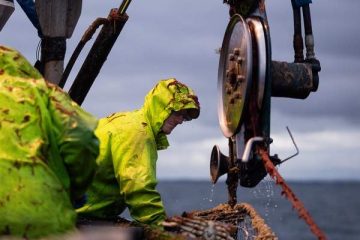 While some commercial crab fishermen are still trickling into ports in Oregon and Washington, the majority of commercial crabbing has slowed for the season as attention turns toward other fisheries. Those remaining are primarily doing so for the live crab market, which fetches top dollar. Oregon and Washington landings, The latest total for Oregon is 13.8 million pounds, according to the Oregon Department of Fish and Wildlife (ODFW) — a dramatic increase from the 8.2 million caught in 2014-15. The Port of Astoria has recorded 4.4 million pounds. Oregon landed 9.7 million pounds in January alone. In February 2.7 million pounds were recorded. The catch slowed to 700,000 in March and 440,0000 in April, respectively. Washington’s January catch also eclipsed the total for the 2014-15 season. Read the rest here 08:59
While some commercial crab fishermen are still trickling into ports in Oregon and Washington, the majority of commercial crabbing has slowed for the season as attention turns toward other fisheries. Those remaining are primarily doing so for the live crab market, which fetches top dollar. Oregon and Washington landings, The latest total for Oregon is 13.8 million pounds, according to the Oregon Department of Fish and Wildlife (ODFW) — a dramatic increase from the 8.2 million caught in 2014-15. The Port of Astoria has recorded 4.4 million pounds. Oregon landed 9.7 million pounds in January alone. In February 2.7 million pounds were recorded. The catch slowed to 700,000 in March and 440,0000 in April, respectively. Washington’s January catch also eclipsed the total for the 2014-15 season. Read the rest here 08:59
Long Island Commercial Fishing Association wants assurances fishing won’t be limited by protection zone
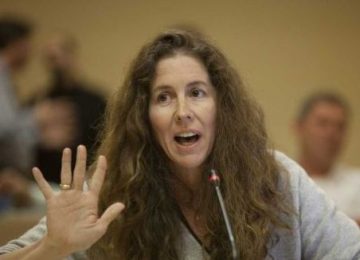 Three Long Island lawmakers have introduced a bill that would create a marine mammal and sea turtle protection zone around Plum Island and two other environmentally sensitive eastern Islands, but a fishing group wants assurances it won’t limit fishing. Assembs. Steve Englebright (D-Setauket), Fred Thiele (I-Sag Harbor) and Sen. Kenneth LaValle (R-Port Jefferson) introduced the legislation June 1. It would create a protection area from the high-water mark on the shore outward to 1,500 feet around Plum Island, Great Gull Island and Little Gull Island. The zones would prevent the “harassment” of harbor seals, harbor porpoises and several species of sea turtles. Read the rest here 08:31
Three Long Island lawmakers have introduced a bill that would create a marine mammal and sea turtle protection zone around Plum Island and two other environmentally sensitive eastern Islands, but a fishing group wants assurances it won’t limit fishing. Assembs. Steve Englebright (D-Setauket), Fred Thiele (I-Sag Harbor) and Sen. Kenneth LaValle (R-Port Jefferson) introduced the legislation June 1. It would create a protection area from the high-water mark on the shore outward to 1,500 feet around Plum Island, Great Gull Island and Little Gull Island. The zones would prevent the “harassment” of harbor seals, harbor porpoises and several species of sea turtles. Read the rest here 08:31


































